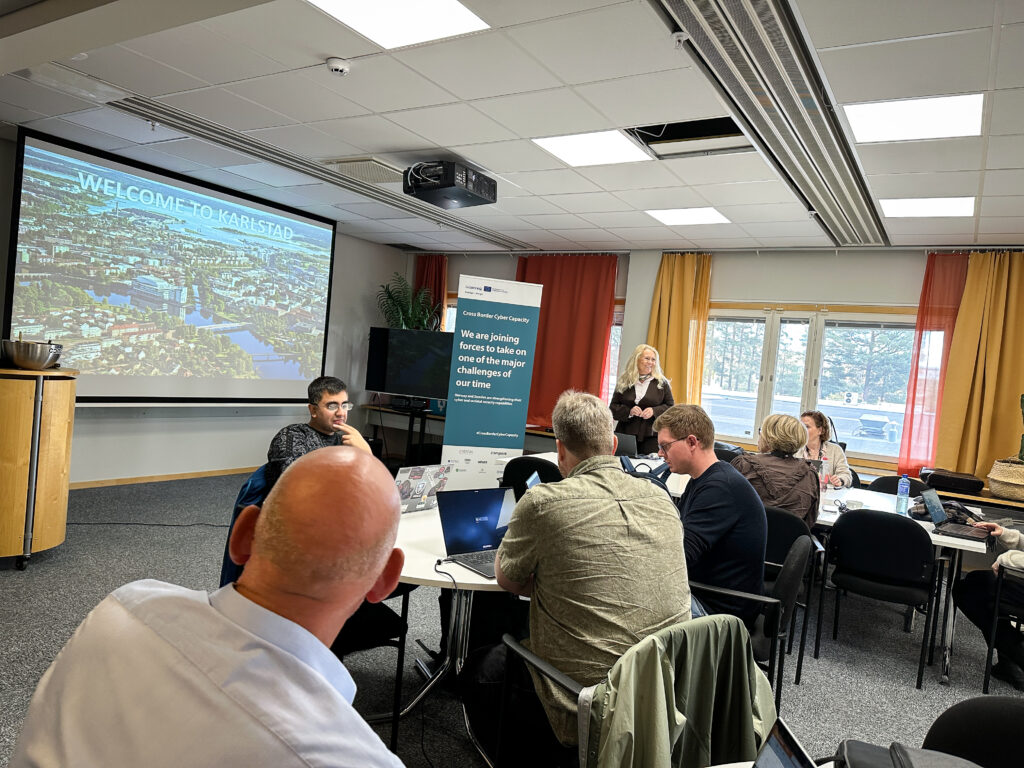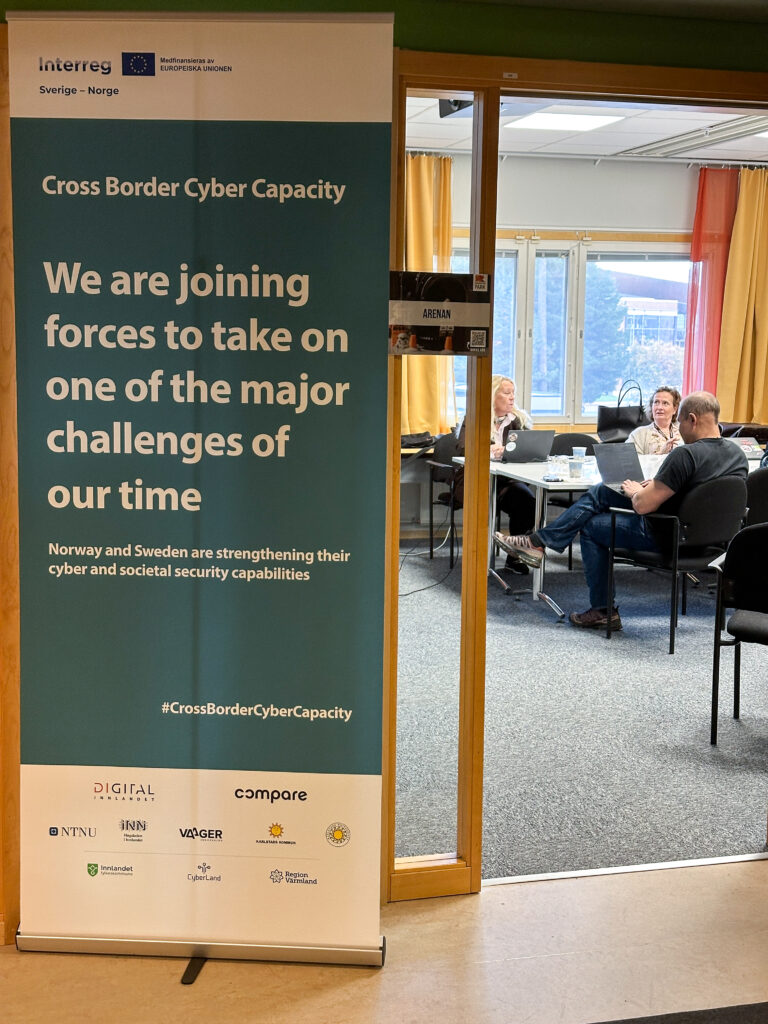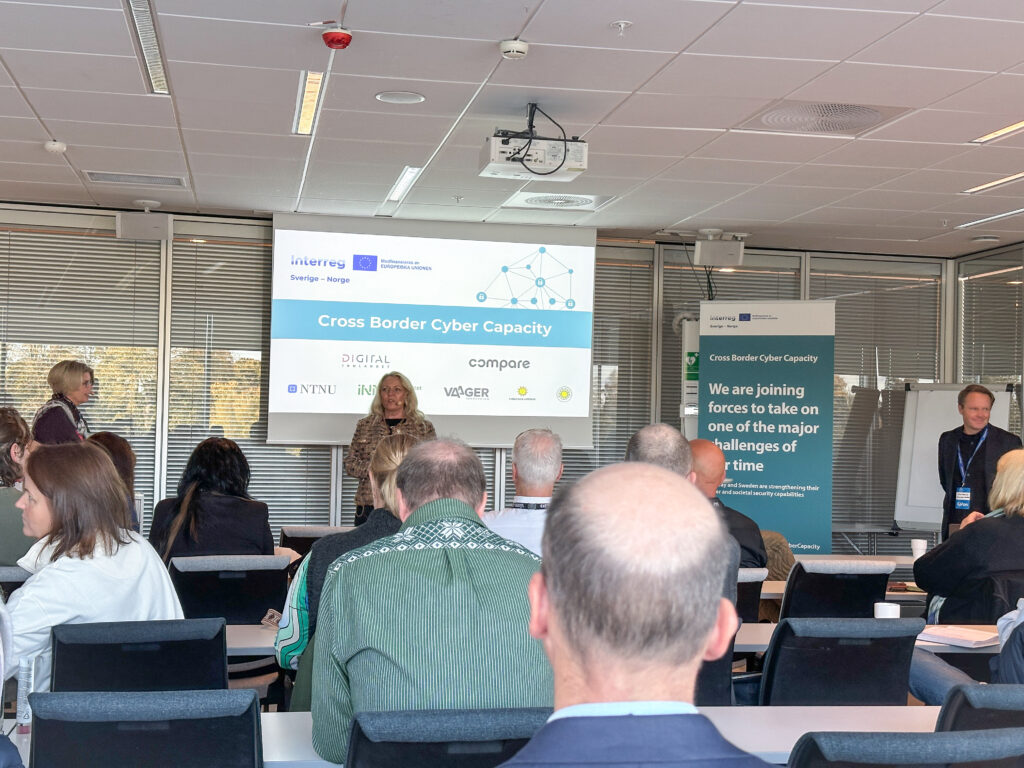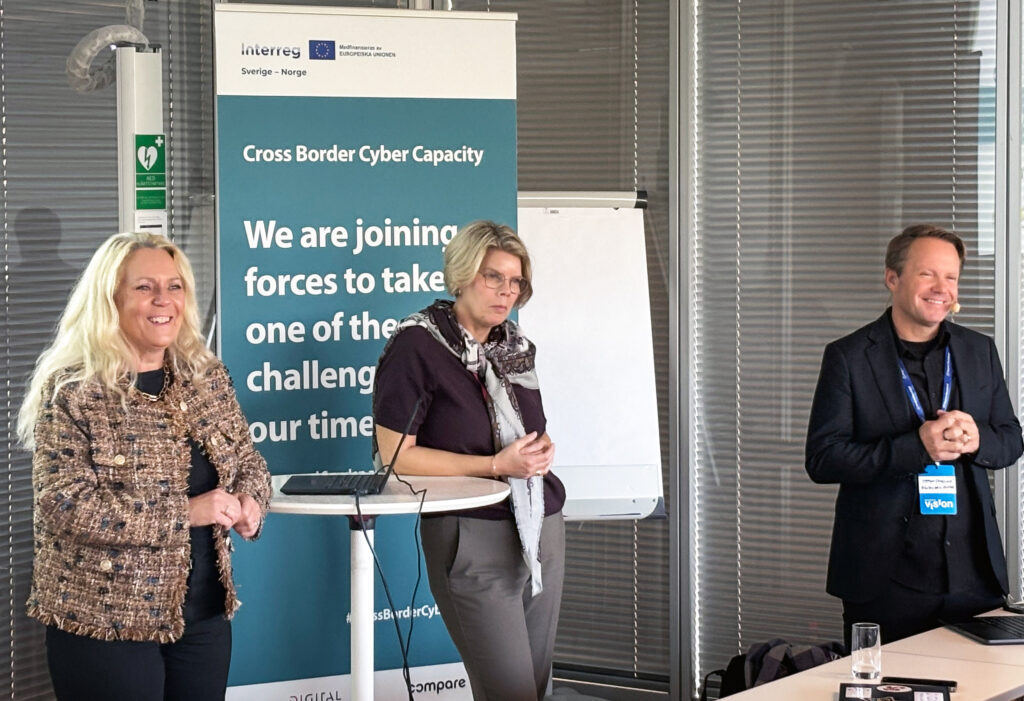There was a flurry of activity when representatives from Digital Innlandet, NTNU, Vaager Innovasjon and Norwegian Cybersecurity Cluster visited Karlstad for a productive two-day project meeting. The Swedish side was represented by Compare, Karlstad Municipality and Karlstad University.
Since 2023, we have jointly run the Interreg project Cross Border Cyber Capacity (CBCC), which also includes the University of Innlandet as an actor on the Norwegian side.
With just over six months left of the project, this was a good gathering to jointly review the benefits we have created while laying the foundation for further work. During the course of the project, the security situation in the world has worsened and cyber threats have increased. For better or worse, the project is perfectly timed. Through the co-operation between Värmland and Innlandet Fylke, we have the opportunity to create a robust structure around cyber and societal security to strengthen the capacity of both nations.


There is a reason why the meeting was held on these particular days. On 2-3 October, Region Värmland arranged the cross-border conference Mötesplats Vision, which focused on how nations can build the total defence of the future.
On the second day of the conference, CBCC was represented when Sweden’s project manager Ingrid Ivars from Compare gave a presentation on the project together with Norway’s project manager Gunn Mari Sund Rusten from Digital Innlandet.
– Nordic total defence is based on trust and cooperation. These days really strengthened the ties. This is what is known as the “Nordic gold”. Together we can strengthen our capacity for cyber and societal security,” says Ingrid Ivars.
She is supported by Gunn Mari, who emphasises the relevance of the project.
– “Cross Border Cyber Capacity shows why it is important to build expertise and preparedness together across national borders. The geopolitical situation makes this co-operation more relevant than ever. Cybersecurity knows no borders, and we can only succeed when academia, industry and public actors play on the same team.


They were also joined by Stefan Skoglund, CEO of DigitalWell Ventures, which has developed the Nordic Cyber X start-up programme and the preparatory Cyber X Idea Lab. The aim is to identify future solutions for cyber security and resilience. An important part of CBCC’s work is to stimulate skills and business development in the field, while contributing expertise and solutions to companies and the public sector to raise awareness of cybersecurity.
“The geopolitical situation makes this cooperation more relevant than ever.”
Gunn Mari Sund Rusten, Digital Innlandet
Within CBCC, problems are attacked from several directions. A Cyberrange Light is being developed for testing and exercising, Challenge Labs are being organised where we bring together different actors around a specific challenge to identify solutions, regular webinars and meetings are held where we exchange experiences across the border, we have an idea programme to stimulate the emergence of new innovations. All of this will result in what we call the Cross Border Cyber Hub. It is the collective work we do together.
A concrete exchange within the project will take place on 5-6 November in the form of the Security Divas Sweden conference, which is inspired by the Norwegian model Security Divas. Compare is organising the Swedish conference for the second year in collaboration with Cybercampus Sweden and Karlstad University. The aim is to highlight female role models in cyber and information security. More women are needed in the industry, and although the conference itself welcomes anyone with an interest in the field, the spotlight is solely on female profiles. The aim is to make the profession attractive to women while raising awareness of what is happening in the field.
Sign up for Security Divas Sweden here and read more about the work of CBCC here.
Cross Border Cyber Capacity is funded by Interreg Sweden-Norway and Region Värmland and Innlandet Fylke. The project is run by the Compare Foundation and Digital Innlandet in collaboration with NTNU (Norwegian University of Science and Technology), the University of Innlandet, Vaager Innovation, Norwegian Cybersecurity Cluster, Karlstad Municipality and Karlstad University.


